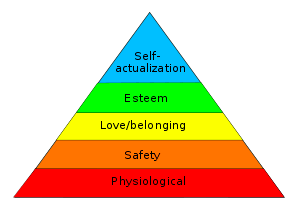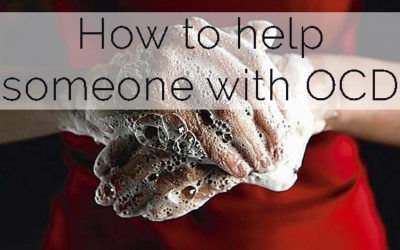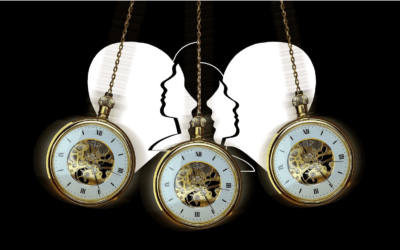
You’ve Got The Same Amount Of Time As Beyoncé
Author – Emma Triplett
When you know you should be doing something that is good for one of the easiest and most convenient excuses not to is
‘I haven’t got time’
I know I’m guilty of using it on a multitude of occasions, but is it true?
In one respect, yes. I’m not the only one to have a busy life and I can’t think of the last time that I sat down and thought ‘I’ve got nothing to do’, I always have a long list of things I need to do or are planning to get started on, but to get right to the point of this article…
You always have time for the things that are a priority in your life.
It isn’t ‘time’ you lack, it’s just that exercising, eating healthily, spending quality time with your loved ones, relaxing, engaging in hobbies you enjoy, retraining so you can step on to the career path you really want, creating that lifestyle you dream of or writing the book you have on your mind, just haven’t made it far enough up your priority list for you to be motivated to do it.
What is a priority in your life? What do you spend most time doing?
Be honest with yourself because until you are, nothing will change.
In 1943 psychologist, Abraham Maslow wrote a paper called ‘A Theory of Human Motivation’ in which he published his theory, known today as, ‘Maslow’s Hierarchy of Needs’.

Each level of needs must be fulfilled before you can progress to the next. At the bottom are the physiological needs including Air (Breathing), Water, Food, Sleep, Clothing, Shelter and Sexual instinct
Next attention turns to ‘Safety’ and until this need is satisfied all your attention will be focused on the possible dangers around you and for staying safe.
Interestingly, if you have anxiety and depression disorders, the worrying, negative forecasting and negative introspecting inadvertently dupes your brain into thinking there is some sort of imminent crisis, emergency or danger and you get trapped in the safety sector of the pyramid. When this happens your brain keeps you focused on the potential dangers and you get stuck in survival mode doing the same thing over and over again because that’s what you did yesterday to stay alive.
To understand this a little more, translate ‘potential dangers’ to ‘problems’. Your brain doesn’t know the difference between imagination and reality and neither does it know the difference between a bill that’s arrived or an argument with a loved one and a sabre tooth tiger. Your brain will believe what you decide, so when you believe it’s the end of the world or some disaster is going to happen because you can’t afford to pay your credit card bill, your brain will interpret that as a crisis, emergency or danger, exactly the same as it would when coming face to face with a saber tooth tiger and activate the flight/fight part of the brain.
You may be able to function fairly normally on the outside, hold down a job and maintain a relationship, but you get stuck in a rut, you don’t feel fulfilled, you push away friends and family, you lose confidence and self esteem – basically you’re not rising up the pyramid of Maslow’s Hierarchy of Needs.
Of course, the important question is, what do you do about it – that bill still has to be paid! Yes it does, but worrying about it doesn’t get it paid, worrying about it keeps you trapped in the same vicious cycles.
You need to look at your priorities and make time to do the things that are good for you – taking time out from worrying about a credit card bill will not make the bill bigger either.
The first step is to do something different, change your lifestyle habits and start doing things that fall under the headings of
Positive Activity (exercise is number 1, but also just being active and achieving things, ticking things off your ‘to do’ list and getting involved in hobbies)
Positive Interaction (spend quality time with friends, family and loved ones)
Positive Thinking (switch your focus away from problems towards positive things in your life and listing the reasons in favour of doing things instead of what stops you)
Doing these things no only calms the mind, it also creates serotonin the neurotransmitters that motivates you, helps you cope with anything life throws at you, makes you braver, helps you cope with physical fear, helps you cope with pain, boosts your immune system and does the amazing job of engaging your intellect so you can work out solutions to the problems in your life, not just focus on the problems. A side effect of serotonin is being happy!
Then you can enjoy the higher levels of the pyramid and create the time in your life for self actualisation, just like Beyonce.
If you have an inspiring story or something to share that you think will help others wrestling with anxiety or depression, I would love to hear from you. If you have found in particular strategy helpful, chances are that someone else will also benefit, spread the word, share the love and help the fight back against the epidemic of anxiety and depression spreading across the western world.
Wishing you health, wealth, happiness and success


More Articles to help anxiety and depression
Arrange a Free Initial Consultation in Cirencester, Exeter, Plymouth, Swindon or by Skype
Shop for online courses, eBooks and Self Hypnosis Tracks to help anxiety and depression
How to Help Someone with OCD
Obsessive Compulsive Disorder can be hard to ignore if you’re living with someone who has it. The temptation is to buy into the OCD and either join the person helping out with their obsession by buying wet-wipes for the person with a germ OCD for example, or to try and stop them carrying out their habits or rituals, encourage them to resist the compulsion. What should you do for the best?
What’s the point of getting out into nature?
Doctors can advise exercise as a remedy for some mental illness, Mind.org.uk has completed a five year study into the benefits of ecotherapy, but why is exercise and nature so beneficial?
Can Hypnotherapy help anxiety?
Can hypnotherapy actually help anxiety. A review of scientific studies suggests that hypnosis can help, but hypnosis is a tool that must be used alongside proven therapeutic techniques for anxiety to have any long term benefits.
Why is anxiety on the rise?
One in four people, that’s a quarter of us, will at some time experience mental health problems during their life. It’s an astounding statistic from the World Health Organisation and according to a report by Mind there has been an increase from 15.5 per cent in 1993 to 26 per cent of adults reported having ever been diagnosed with at least one mental health problem in 2014. Many mental health problems including OCD, self-harm, eating disorders, insomnia and many physical problems are anxiety related, so why is anxiety increasing so rapidly.
Are Anxiety and Depression the same?
At first glance anxiety and depression are very similar, they feel different; anxiety being fearful and worried whilst depression is feeling miserable, but you can have both at the same time. They are in fact interestingly similar and in this article we going to have a look at some of the similarities and differences both in the way they develop and in the way they are cured.
When Anxiety Strikes
This is the third instalment of my mini series on anxiety in which I’m going to give you some top tips for dealing with anxiety when it strikes, but also ultimate strategies to reduce the positive feedback loop that’s creating the anxiety described in the last article ‘Where does anxiety come from?’
Disclaimer | Privacy Policy | Terms and Conditions
Copyright © OLD TOWN HYPNOTHERAPY 2016 All Rights Reserved







